What are solar tubes? This question is more common with people that rely on devices to illuminate dark areas in spaces without windows.
An excellent example is the traditional skylights ideal for channeling natural light into homes. But this solution is quite expensive to install. And they may be too big for small spaces.
Thankfully, solar tubes are better alternatives. Read on to get more details on the topic.
What are Solar Tubes?
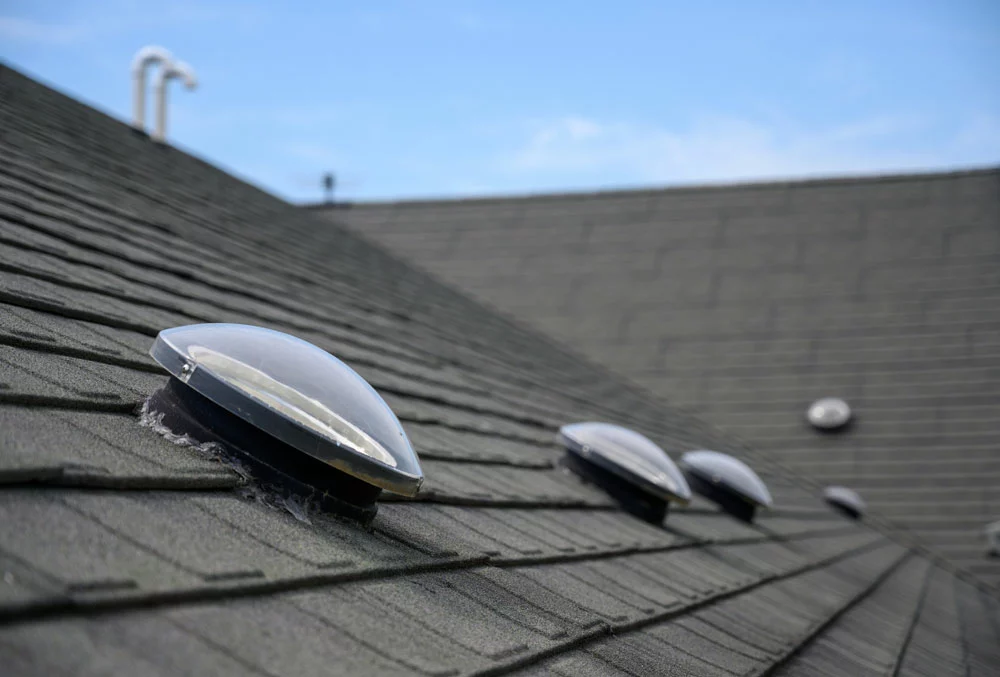
Multiple solar tubes
Solar tubes are like tunnels that capture sunlight from outside and channel it into your home. They’re perfect for spaces without windows or other ways for natural light to enter.
Although they may not offer killer views of the outside world, solar tubes provide a cost-effective and natural way to brighten dark interior spaces. Plus, you can get this illumination without spending on electricity.
Interestingly, solar tubes have relatively small sizes. Hence, it’s easy to fit them between roof rafters. And you can rest assured that these lighting options won’t damage your building’s structural integrity.
In addition, solar tubes have reduced heat gains and losses compared to traditional skylights. Also, they’re ideal for adding natural light to different areas like closets, hallways, bathrooms, and laundry.
How do Solar Tubes Work?
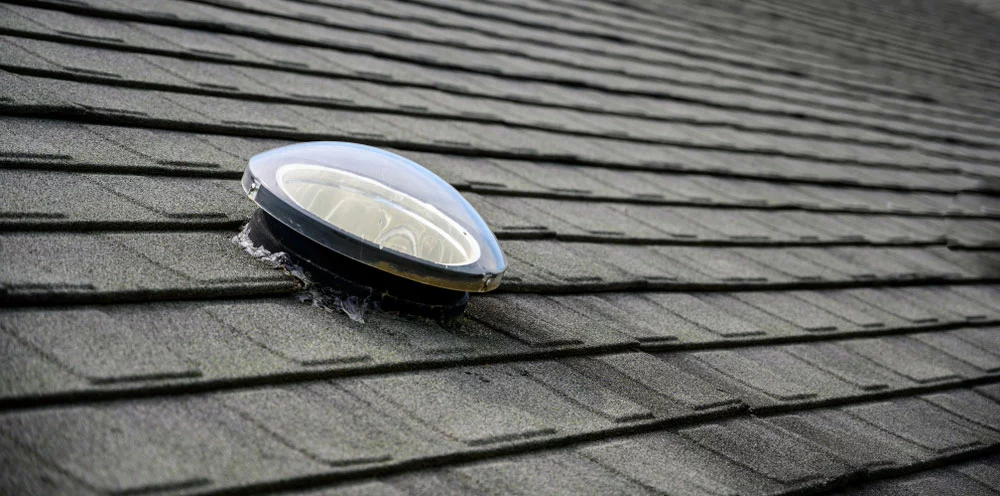
Solar tube installed on a roof.
Solar tubes have optically engineered designs allowing them to redirect sunlight into tunnels. In truth, they come in different sizes, typically ranging from 1 to 2 feet in diameter. Also, these tubes have weather-resistant and clear acrylic domes for protection.
Interestingly, there’s no limit to how much you can stretch your solar tube’s length. Further, these tubes come equipped with super-reflective mirror coatings, which amplify the sunlight flowing into the tunnel.
Some models offer flexible and low-profile tubing. Usually, they reduce the need for cutting and fitting metal sheets. Also, solar tube manufacturers offer sleek models resembling small skylights. These variants are worthy considerations if you don’t want bulky domes passing through your roof.
You can find UV ray protection systems on most sun tubes. Typically, it could be at the end. Alternatively, you can find them at the tunnel’s beginning. The system acts as a shield blocking the harmful effects of direct sunlight.
The Pros and Cons of Solar Tubes
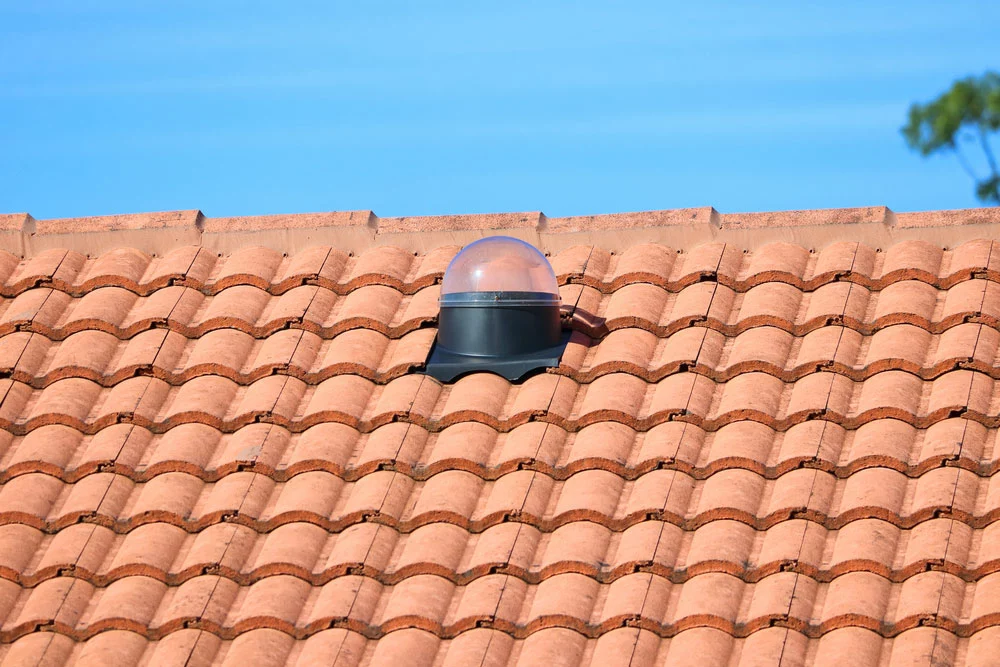
Solar light tube
Solar tubes are steadily becoming a contemporary lighting source with advantages and disadvantages—like other options.
Hence, let’s take a closer look.
Solar Tubes; Advantages
Environmentally Friendly
Solar tubes don’t release toxic substances when generating light. In short, they’re clean and 100% renewable. And adding a weather-resistant dome prevents harmful UV rays from infiltrating the fixture.
Free Lighting
Solar tubes offer natural lighting for darker homes at zero cost. Hence, they’re perfect alternatives to electric lights during the day. On sunny days, you’ll get lights equivalent to 100 watts from a 10-inch solar tube. Hence, it’s a safe way to illuminate a whole room and save some cash.
Natural Light
The essence of solar tubes is providing natural light. It’s reliable and can provide all the health benefits(like vitamin D) you’d get from direct sunlight. Other benefits you can get include mental & physical boosts, reduced blood pressure, and enhanced performance.
Low Maintenance Costs
Solar tubes are durable and sturdy. So you won’t need to spend a lot on maintenance. Also, they enjoy protection from acrylic domes, which prevents leakage and damage from weather conditions, insects, & humidity.
Flexible Design
Typically, solar tubes don’t mess up your building’s structure. And it’s all thanks to their flexibility that allows the tubes to pass through smoothly without damage.
Solar Tubes: Disadvantages
Limited Aesthetics
In truth, you won’t get much out of solar tubes in the aesthetics department. Solar tubes are small and won’t improve a space beyond providing natural light.
Not Compatible with all Structures
Although the solar tube is flexible, they don’t work for every roof. However, most of these tunnels are ideal for roofs sloping between 15 to 60 degrees.
Therefore, flat roofs or steep pitches may cause installation difficulties. In addition, your roof’s material also determines if you’ll need an adapter or not.
Moreover, a Solar tube can only work on roofs. So you might get only some of the benefits of two-story buildings. The ground floor would need longer tubes to channel sunlight–which may be less efficient.
Incompatible Ventilation
You can’t add ventilation systems to a solar tube. As a result, it’s impossible to dissipate heat or get some air through these light tunnels.
Singular Energy Source
The solar tube can only get energy from one source (the sun). Therefore, you may get little or no light in harsh weather conditions–making them less functional. So, you’d either have to stay in darkness or use an alternate light source.
Thermosiphon and Noisy
Aluminum is the primary material for A solar tube, which is excellent. But it’s difficult for the material to deliver during winter. As a result, there will be a decrease in your home’s overall R-value.
Additionally, all that aluminum may generate noise during windy days. Unfortunately, you can’t remove them, meaning you’d have to endure the noise.
How much do Solar Tubes Cost?
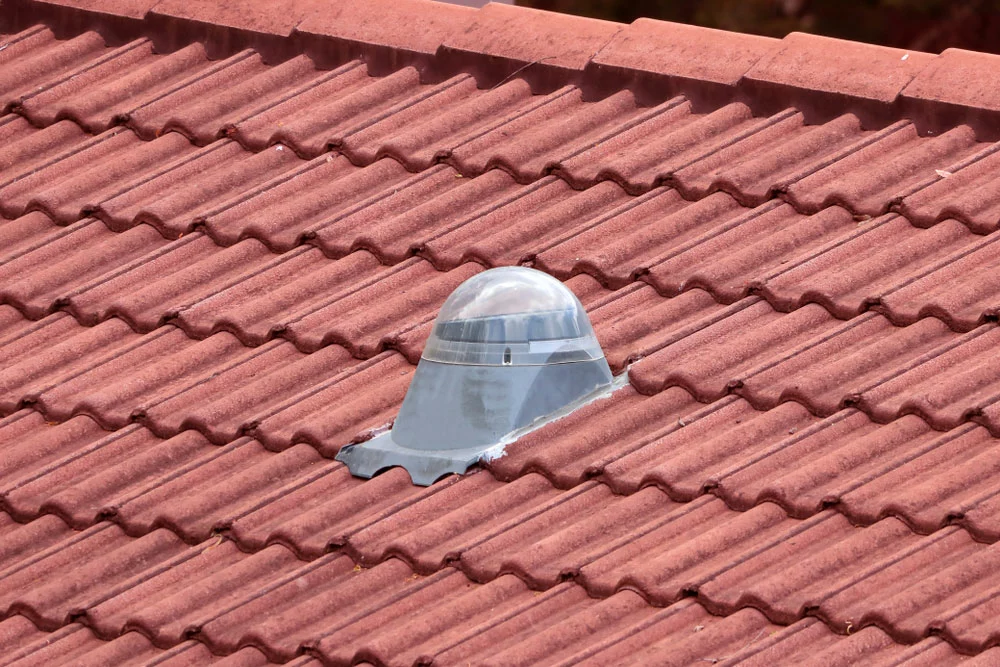
Solar tube on a red ceiling
A Solar tube has a decent overall cost. Usually, using professional services to install a solar tube may cost $750 per unit.
In addition, a DIY solar tube is available on the market, and they go for $300. However, we recommend this option if you’re confident in your skills and can spare the time it takes to install. Installing a solar tube yourself may also void your roof warranty. So, ensure to check with your roofing installer before proceeding.
Difference Between Solar Tubes and Skylights
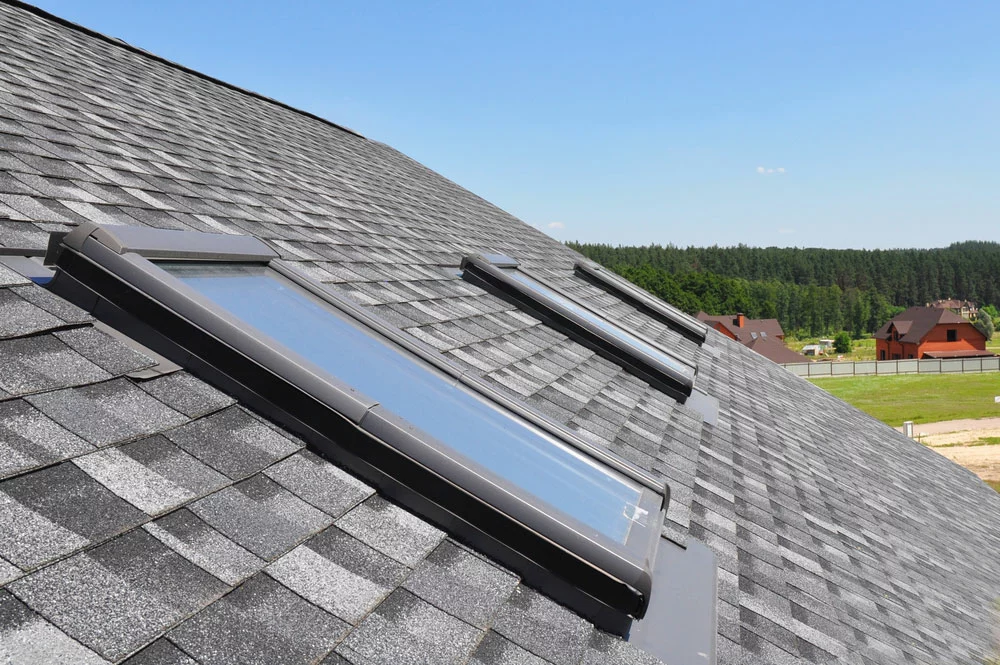
Skylights
Here are some significant differences between solar tubes and skylights.
Energy Efficiency
Solar tube have the upper hand in this category. They capture natural light and channel it into different areas and spaces. On the other hand, skylights deliver similar results by generating three times the amount of light from windows.
But you’ll lose energy due to heat gain in hotter climates. Luckily, that’s not a problem with solar tube, making them more energy efficient than skylights.
Protection from Ultra-Violet Rays
Solar tube offer better UV protection than skylights. Unfortunately, skylight systems only reduce the impact of ultraviolet rays. Also, solar tubes protect homeowners with weather-proof acrylic domes.
Additionally, the protection system blocks all dangerous rays that may harm the eyes or skin.
Water Condensation
Both solar tube and skylights suffer from this issue. However, there are easy solutions. For example, a humidifier can prevent skylights’ condensation, while solar tubes require insulation.
Aesthetics
Skylights take the win here, as solar tubes have little or nothing to offer in this department. Interestingly, skylights can emit light from sunlight to star-filled night skies.
In contrast, solar tube only draws light from the sun and don’t influence a room’s beauty or architecture.
Conclusion
Solar tube are energy-efficient and cost-effective ways to naturally illuminate dark spaces in your home.
Additionally, they’re easy to install and will cost less than skylights. You can also use DIY installation, which requires more consideration, skill, and time. Further, it uses less electricity while offering natural light. Also, solar tube help to reduce your carbon footprint.
In other words, a solar tube affects your health and mood. Hence, you’ll feel better with more natural light in your home. Furthermore, although skylights offer a phenomenal view of the sky, a solar tube is more practical and easily creates perfect environments in your home.
Do you have more questions? Feel free to contact us, and we’ll be happy to help.
